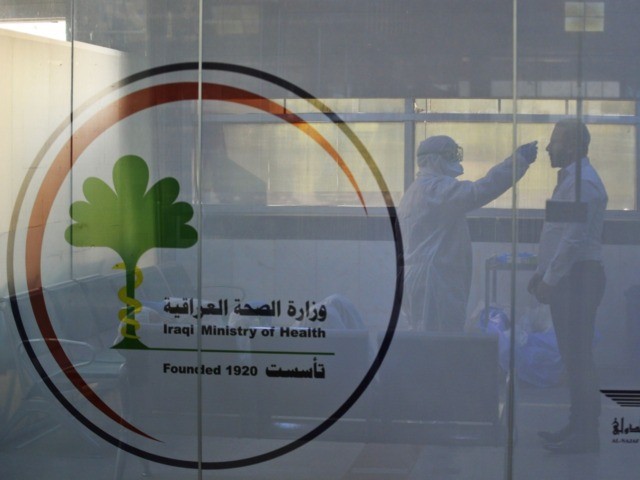Iraq and Afghanistan confirmed their first cases of the Wuhan coronavirus on Monday.
Both cases were detected near the Iranian border and involved patients who recently traveled to Iran, where an outbreak spreading from the city of Qom has officially infected 61 people and killed 12, although a lawmaker from the area claims there have been 50 deaths and 250 people are under quarantine.
Iraq’s first confirmed coronavirus case was described by health officials in the southern city of Najaf on Monday as an elderly Iranian national who entered Iraq before travel from Iran was banned.
Iraq also closed its border with Kuwait on Sunday after the Kuwaitis reported three confirmed coronavirus infections, all of them people who recently visited the Iranian city of Mashhad. Bahrain also reported a person who recently visited Iran has been diagnosed with the virus based on preliminary tests.
Afghanistan’s first confirmed infection was announced in the western province of Herat on Monday. The patient recently returned from a visit to Qom in Iran. At least two other people in Herat are under observation for possible coronavirus infections.
“Millions of Afghans live in Iran, often coming back and forth by car and bus across the border to see family and seeking work,” Reuters observed on Monday, quoting eyewitnesses who saw hundreds of vehicles blocked at the border after Afghan officials ordered a ban on travel from Iran. A large number of Afghan nationals were reportedly stranded in Iran when the border was closed, some of them with expiring visas.
Both Afghans and Iraqis expressed fears that the poor health care systems of their countries would be unable to cope with a coronavirus outbreak.
“The thing that makes us worried about coronavirus in Afghanistan is that our people, due to weak economy, are already suffering from different diseases and they have weak immune system,” Afghanistan’s health minister Ferozuddin Feroz said at a press conference on Monday.
The World Health Organization (WHO) met with health officials in Baghdad on Saturday to help them develop a response plan for the coronavirus, providing them with test kits and medical advice. Al-Jazeera reported that the Iraqi people have little confidence in the ability of the government they have been protesting against for months to deal with an epidemic:
“We want to live, but our government doesn’t care about the Iraqi people,” a doctor from Anbar province wrote on Twitter. “We don’t have qualified hospitals to face the danger of coronavirus.”
Others drew comparisons between the digital thermometres used to detect the virus at border crossings and the infamous fake bomb detectors sold to the Iraqi government by British businessman James McCormick between 2008 and 2010 to be used at checkpoints.
Meanwhile, Iraq’s top Shia leader Grand Ayatollah Ali al-Sistani on Friday also called on authorities to be “up to the level of responsibility” and step up preparations.
While officials have yet to announce when the Iran-Iraq border crossings will reopen, analysts say the financial implications will not allow for a prolonged closure.
The Iranian regime, increasingly sensitive to complaints from the rest of the region that the virus is spreading unchecked from their country, on Monday “categorically denied” allegations that it has covered up the true number of coronavirus infections and deaths. According to Tehran, the coronavirus was carried across its borders by people who entered Iran illegally from Pakistan, Afghanistan, and China.
A lawmaker from Qom said over the weekend that he provided the names of many more coronavirus victims than the central government is willing to admit and demanded the resignation of the health minister for lying about the scale of the epidemic.

COMMENTS
Please let us know if you're having issues with commenting.